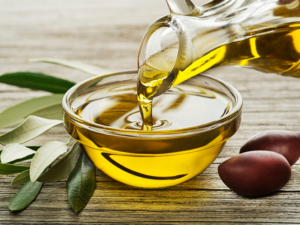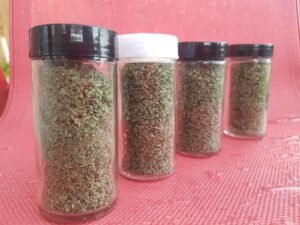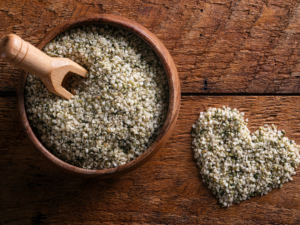My Hummus Love Affair
Welcome my beautiful, strong and sexy Self-Care Goddess to my blog post. In this post I will be sharing with you my secret obsession with hummus, this ancient recipe that brings happiness to my tastebuds, every time!

What is hummus and where does it originate from?
Hummus, not to be confused with humus (organic matter in soil), is a yummy dip, spread, or side dish, that can be easily customized to your tastebuds. It is super versatile because you can make so many variations of it, adding in your favourite vegetable, herbs and spices.
Hummus is a great source of plant-based protein, gluten-free, packed with vitamins and minerals. Research has linked it to a variety of health benefits, including but not limited to:
- Helps fight inflammation
- Helps with blood sugar control
- Improves digestive health
- Lowers heart disease risk
- Helps with weight management
Surveys have shown that people who consume chickpeas/hummus on a regular basis are less likely to be obese, have lower BMI and smaller waist circumference.
The Start of My Love Affair
I love chickpeas so my love affair with hummus came very easy for me. I was first introduced to hummus, here in Canada. It would be at every party as an appetizer next to the spinach and artichoke dip. I must admit I enjoyed it but I really came to love it when I moved to the middle east and had the REAL thing.
So who invented it? Well it’s interesting because every country in the Levant region, which is made up of Lebanon, Jordan, Syria, Israel, Palestine, and most of Turkey claims that their hummus recipe is the most authentic one. There are a few more countries that seem to claim its origins for this delicious dip, and that is Egypt and Greece. But I have tried hummus in Lebanon, Jordan, Syria, Turkey and Egypt, and hands down the most delicious one was a tie between Lebanon and Syria. The creamy texture, right amount of lemon, and enough salt made it truly delightful for my tastebuds.
So to answer the question, no one really knows where its origins lie, but if I had to guess I’d probably say Egypt. Why? Because Hummus means chickpeas in Arabic, so I’m going to double down on one of the oldest countries on the list of contenders.
What’s in hummus?
Living in Dubai, I had the pleasure of getting the inside scoop from different Arabic cultures on how to make true authentic hummus, so here it goes.
All the following ingredients must be good quality and well sourced because, trust me when I tell you, it will affect the end result – in a not-so-pleasant way!
So here it goes, I’ve listed the ingredients in order of importance:
- Chickpeas are the star of the show, the main actor. There are many benefits to consuming them but here are my favourite:
- Low on the GI index, which means they slowly release sugar into your bloodstream, and trust me that’s a good thing.
- High in fiber, which help promote healthy gut bacteria. Produce butyrate, which is a type of fatty acid that helps nourish cells in the gut.
- Low in calories and a great source of minerals like iron, manganese (good for the knees), copper, folate, magnesium, phosphorous, zinc, potassium, and vitamin Bs (primarily B1 & B6).
2. Tahini is the supporting actor in this beautiful love affair. It is sesame seed paste. A tasty way to add powerful antioxidants and healthy fats to your diet, as well as several vitamins and minerals. I was surprised when I discovered that this pasty mixture is composed of a 1:1 ratio of protein to carbs, great source of fiber, good fats, iron, zinc, selenium and calcium. It’s also a hormone balancer because of it contains phytoestrogens. Here’s a little secret: ensuring the right amount is added to the recipe is crucial to the taste and texture.

3. Extra Virgin Olive Oil is the next ingredient, and the healthiest FAT on earth. Being Italian, I absolutely adore olive oil and it’s definitely an ingredient that I can’t live without. A rich source of antioxidants and mono saturated fats, both are proved to be protective of cardiovascular health, lower risk of type 2 diabetes, bone health and protective against certain type of cancers. So there is so much to love about olive oil.

4. Garlic is the another ingredient that is needed to make hummus. Raw, cooked or roasted, I love this powerful ingredient because it is not only anti-bacterial and anti-parasitic, but it’s also a blood purifier, which helps with healthy skin. Also, helps to cleanse your system and flush out toxins.

5. Ground Cumin is where the similarities between the recipes stop. Cumin is a spice that is used in many Asian and Middle Eastern dishes. This powerful antioxidants promotes digestion, containing good amount of iron, helps to improve blood sugar, and help with weight loss and fat reduction.
So these 5 basic ingredients are always present in any good quality hummus, but here is where the recipes start differing among my Arabic friends.
You can either add real lemon juice or use lemon salt, because both are needed so it’s up to you, but I like using them separately.
Lemons contain high amounts of Vitamin C, soluble fiber and several beneficial plant compounds that are highly heart-healthy. The citric acid helps to absorb non-heme iron from plants, which may prevent anemia.
Sea Salt is next but it has to be the real-deal, no table salt bull crap. The real Sea Salt keeps you hydrate, balances electrolytes, reduces fluid retention and prevents muscle cramps. It’s a great source of minerals and 84 trace minerals that nourish and strengthen our body.
My Own Little Twist
Ok, now this is where I add my own little twist to the original recipe. Because I’m a health nut and want to maximise the health benefits of everything that I put into my body. So I add the following nutrient dense ingredients to my hummus:
Dried Oregano: the leaves of the oregano plant are anti-septic, anti-bacterial, anti-fungal and carminative (prevents gas). Potentially reducing growth of cancer and help alleviate inflammation. My dad and I grow it in the backyard and dry it ourselves, a little bit of work, but the real stuff smells heavenly.

Kelp: so I add a dash of Kelp not only because it’s high in iodine, which protects your thyroid but it’s naturally high in anti-oxidants. Helps fight against disease causing free radicals. It contains anti-oxidant vitamins like Vitamin C and minerals like Manganese, and Zinc help combat oxidative stress.
Hemp Hearts: There are definitely many reasons to full in love with our nutritious hemp hearts. They contain high levels of the amino acid arginine, which helps to lower blood pressure and reduce your risk of heart disease. They are rich in phytonutrients and anti-aging anti-oxidants such as Vitamin E protect against cardiovascular system damage.

One of my favourite way to enjoy hummus is to marry up my Italian background with my Arabic experience and that’s by adding my beloved Sun-dried Tomatoes. These intensely flavoured sun kissed beauties are a concentrated source of vitamins. Specifically Vitamin C, K and minerals like iron. They also contain Lycopene, which is an anti-oxidant that lowers risk of certain cancers.

Check out my favourite Hummus- Italian style with sun-dried tomato recipe, here. My beetroot hummus recipe here
References:
Is Hummus Healthy? 8 Great Reasons to Eat More Hummus (2018, May 2). Retrieved January 6, 2021, from https://www.healthline.com/nutrition/is-hummus-healthy#TOC_TITLE_HDR_2
10 Benefits of Hummus (2020, August). Retrieved January 6, 2021, from https://www.organicfacts.net/hummus.html
9 Powerful Benefits of Cumin (2017, March 23). Retrieved January 6, 2021, from
https://www.healthline.com/nutrition/9-benefits-of-cumin#TOC_TITLE_HDR
14 Powerful Benefits of Raw Garlic (2020, October). Retrieved January 7, 2021, from https://www.organicfacts.net/health-benefits/herbs-and-spices/health-benefits-of-garlic.html
7 Proven Benefits of Hemp Seeds (2020, August). Retrieved on January 7, 2021, from https://www.organicfacts.net/hemp-seeds.html
12 Surprising Health Benefits of Tahini (July, 2020). Retrieved January 7, 2021, from https://www.organicfacts.net/tahini.html

